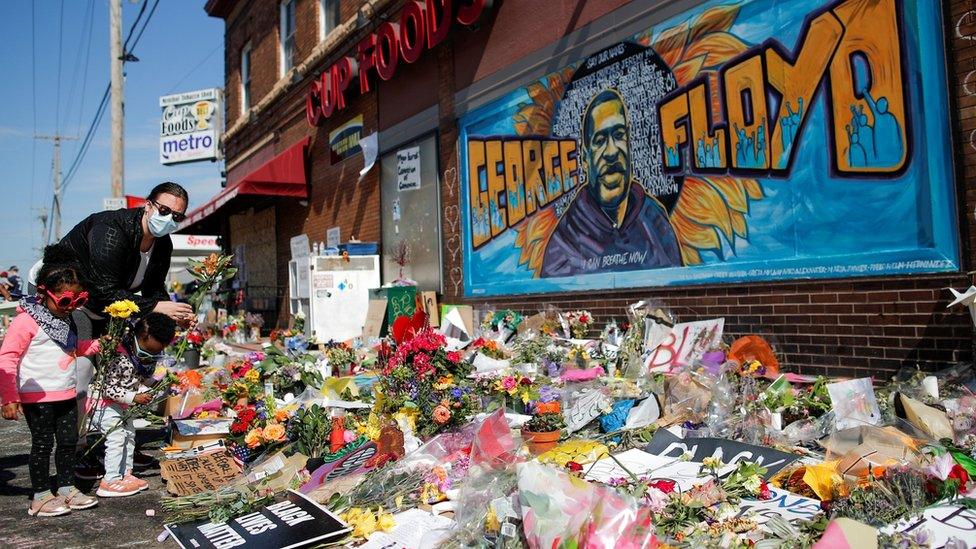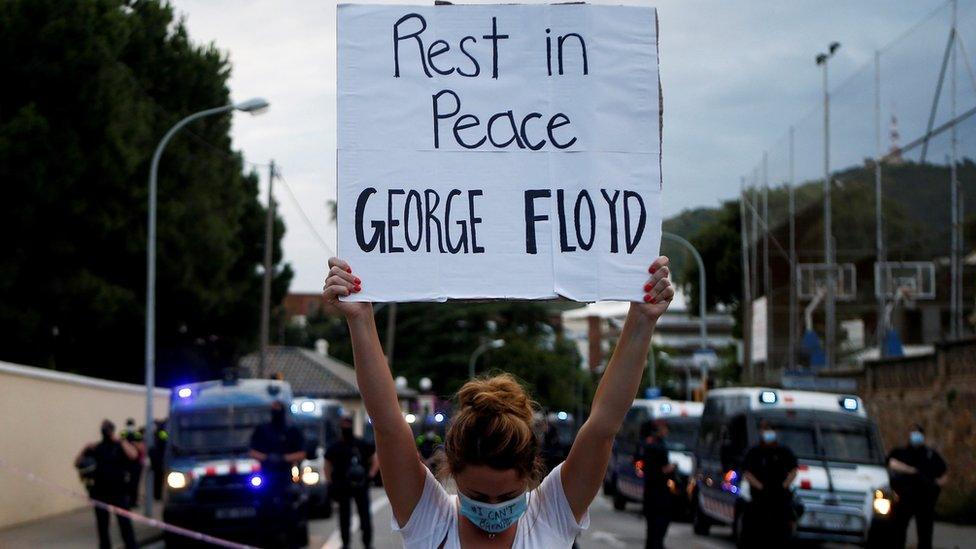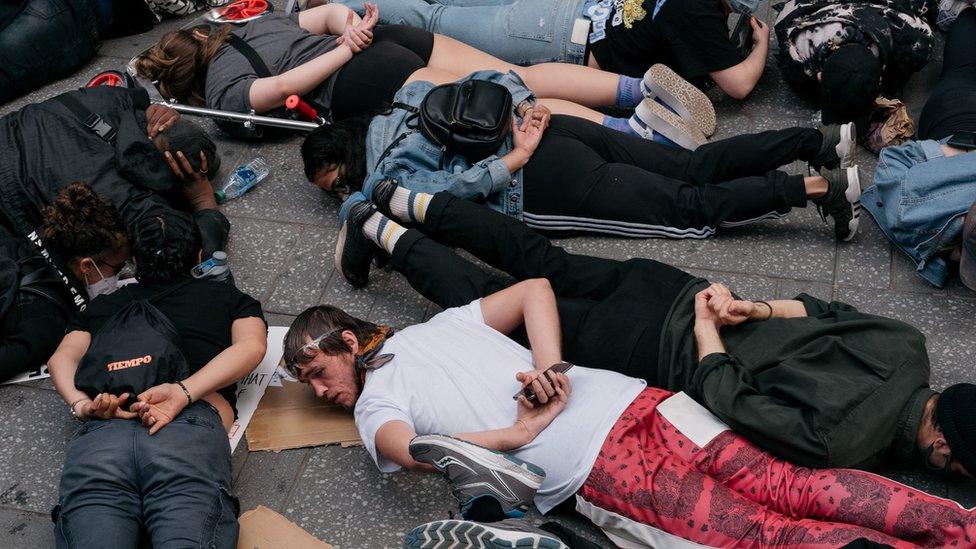George Floyd died of asphyxia, private post-mortem finds
- Published
Floyd's brother: 'That's not bringing him back'
George Floyd, the African-American man whose death has sparked civil unrest, died from asphyxia (lack of oxygen), a private post-mortem examination found.
He died due to compression on his neck and back by Minneapolis police officers, medical examiners hired by the Floyd family said.
The findings differ from an official preliminary examination carried out by the county medical examiner.
It did not find evidence of "traumatic asphyxia or strangulation".
The official examination also said underlying health conditions played a role in Mr Floyd's death.
But the two doctors hired by the Floyd family found the death was a homicide, a statement from its legal team said. , external
"The cause of death in my opinion is asphyxia, due to compression to the neck - which can interfere with oxygen going to the brain - and compression to the back, which interferes with breathing," Dr Michael Baden, a former New York City medical examiner and one of the pair, said at a news conference.
'This is pain right here' - Washington DC protests turn violent
A video showing a white police officer continuing to kneel on George Floyd's neck even after he pleaded he could not breathe sparked outrage when it emerged a week ago.
It has led to six consecutive days of protests around the United States and a level of civil unrest not seen this widely across the country in decades.
Benjamin Crump, a lawyer for the Floyd family, told Monday's news conference: "Beyond doubt he would be alive today if not for the pressure applied to his neck by officer Derek Chauvin and the strain on his body by two other officers."
He added: "The ambulance was his hearse."
Dr Baden said there was "no other health issue that could cause or contribute to the death".

A memorial has sprung up in Minneapolis at the spot where George Floyd was arrested by police
The findings contradict those of a preliminary post-mortem examination that was included in the criminal complaint against Mr Chauvin, who has been charged with third-degree murder and manslaughter.
The medical examiner noted in that report that Mr Floyd had underlying heart conditions and said the combination of these, "potential intoxicants in his system" and being restrained by the officers "likely contributed to his death".
The full official death examination is yet to be released by the office of the Hennepin County Medical Examiner. It says it is awaiting more results from laboratory studies.

There have been protests in several European cities, including this one in Barcelona
The Floyd family and their lawyers say the charge against Mr Chauvin should be increased to first-degree murder. They say the private post-mortem examination proves two other officers filmed kneeling on his back also contributed to his death.
What's the latest on protests?
More than 75 cities have seen protests over what happened to George Floyd, with streets only days ago deserted because of coronavirus full of demonstrators marching shoulder to shoulder.
The case has reignited deep-seated anger over police killings of black Americans and racism. It follows the high-profile cases of Michael Brown in Ferguson, Eric Garner in New York and others that have driven the Black Lives Matter movement.
On Sunday, mostly peaceful demonstrations once again gave way to violence in many cities, with clashes erupting between police and protesters.
Police cars were burned, buildings were torched and shops looted in several places. Dozens of cities imposed curfews but they were defied.

Protesters staged a "die-in" in New York City's Times Square on Monday
On Monday, President Trump told state governors they had been "weak" and had to get "much tougher", and utilise troops from the National Guard, thousands of whom have already been activated in two dozen states.
"You've got to arrest people, you have to track people, you have to put them in jail for 10 years and you'll never see this stuff again," Mr Trump said in a video conference call, according to US media.
There have been scenes of violence in Washington DC in recent nights, including near the White House.
Demonstrators lit fire to buildings including a historic church known as the church of the presidents overnight on Sunday.
Many videos shared on social media from across the US appeared to show riot police responding disproportionately to demonstrators. Dozens of attacks targeting journalists have been reported.
A tanker has been driven at protesters in Minneapolis
The curfew in Washington DC has been extended for another two nights and will start at 19:00 on Monday. A curfew starting at 23:00 had been in effect on Sunday.
New York City is also imposing a citywide curfew on Monday from 23:00 until 05:00 on Tuesday.
"The violence and the looting has been bad for the city, the state and this entire national movement, undermining and distracting from this righteous cause," said New York Governor Andrew Cuomo.